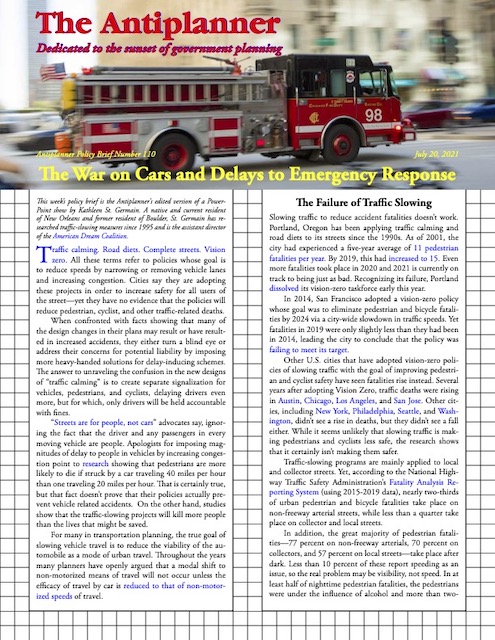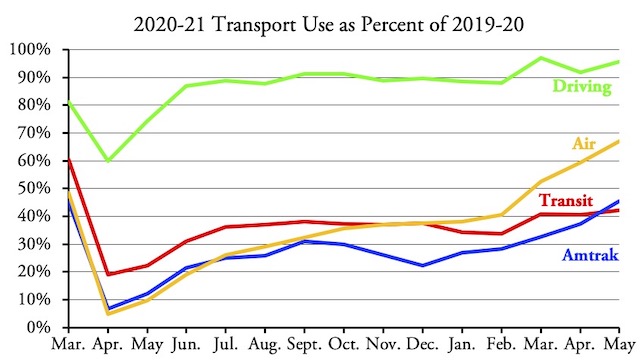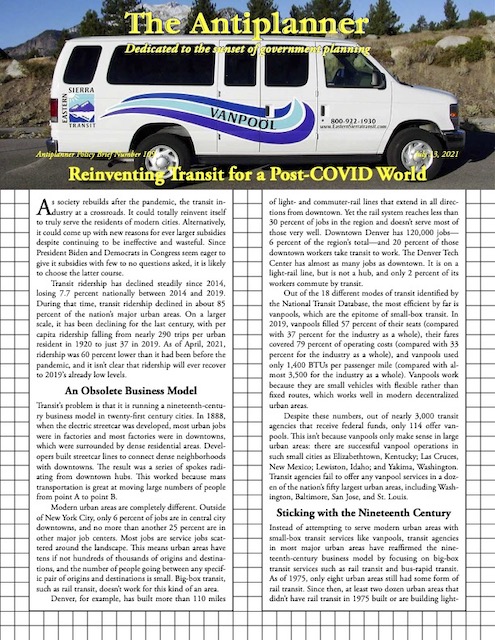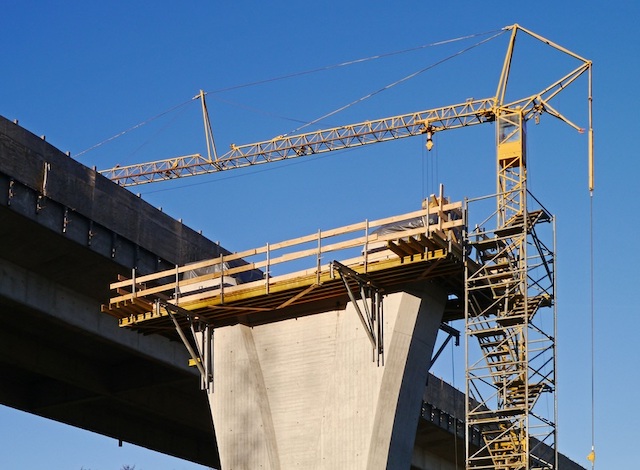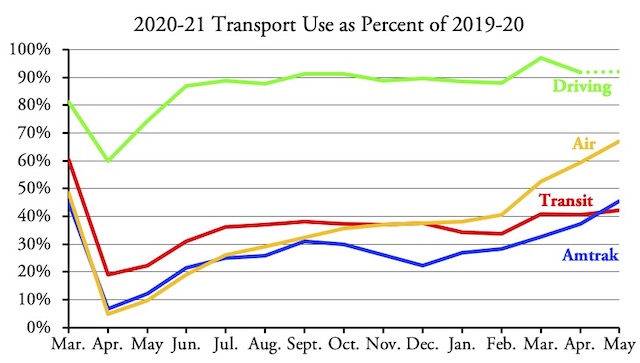Democrats looking to the 2022 election must worry that some of their number are working so hard to alienate the vast majority of American voters. As noted in Politico, members of the House Transportation and Infrastructure Committee, led by the Antiplanner’s own congressman, Peter DeFazio, are openly hostile to American’s favorite form of travel.
“You can’t pave over the whole country,” says DeFazio, whose INVEST Act, which recently passed the House, contains provisions that would severely restrict the ability of state to spend federal highway dollars on new highways. Yet highways occupy a vanishingly small share of the nation’s land area, and the idea that there is any danger to them paving over the whole country is just fear mongering.
Americans use highways for 87 percent of their personal travel while Amtrak and transit, which DeFazio and friends favor, provide just 1 percent of passenger-miles. There are good reasons for this: motor vehicles and highways are cheap, convenient, and fast relative to the Democrats’ alternatives. So it’s not surprising that 92 percent of American households own at least one car, 96 percent of American workers live in a household with at least one car, and at least a third of the 4 percent of American workers who live in households without cars nonetheless get to work by automobile. Continue reading

